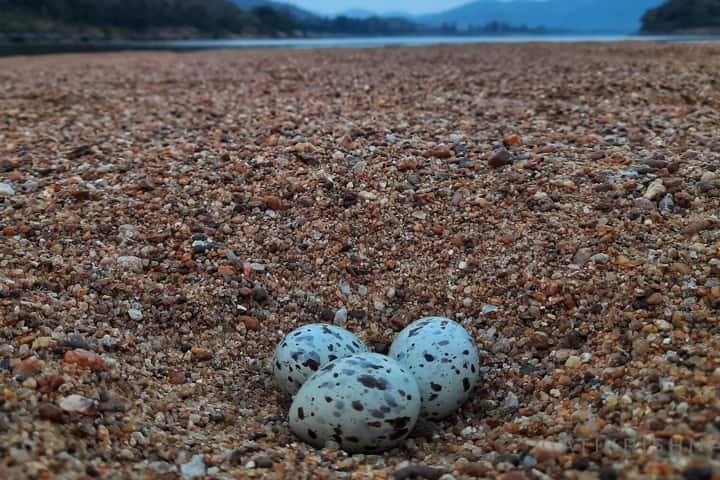There is a wave of happiness among the wildlife enthusiasts and forest officials of Odisha’s Satkosia Tiger Reserve as for the first time the Indian Skimmer has started breeding in the sanctuary. This International Union for Conservation of Nature has categorised this species as endangered.
It was recently that the officials became aware of the breeding of the Skimmer species – one of the three species that belong to the family — taking place at the Baladamara sandbar which is located in the 22-kilometre stretch of Satkosia gorge of Mahanadi river.
Good News for Conservationist. The endangered Indian Skimmer for the first time laid their eggs in Satkosia Gorge & successfully the chick’s are hatched.Monitoring documentation of the nest and chick’s ar going on. @angul_dm @pccfodisha @PCCFWL_Odisha @ForestDeptt pic.twitter.com/7wMRnhERmp
— DD Satkosia TR (@dfo_satkosia) April 18, 2023
It was the continued sighting of the Indian Skimmers that alerted the Forest officials as these birds usually reach STR in November and start departing by second week of March.
This year was exceptional as 24 of these birds continued to be present in the reserve. Talking to the media about it, Saroj Panda, the Divisional Forest Officer said on investigating, they found five nests in which hatching had taken place on April 10. Three chicks have hatched so far.
Aware of hatching taking place, the officials are on the alert and protection measures have been increased to provide these birds safety.
Indian Skimmers are found on large rivers and lakes, swamps and coastal wetlands such as estuaries. Over the years its range has become increasingly fragmented. While it is still found in parts of Pakistan, Bangladesh, Burma, currently its last strongholds are India, and Bangladesh.
Breeding by these birds has been documented on the banks of the Mahanadi river at the Mundali barrage, Chandaka Wildlife Division in Cuttack. Their breeding at STR suggests that these birds are moving to Satkosia gorge in winter as their foraging ground for migration. The reason for Skimmers to look for new breeding grounds means that as there is excessive human activity in other places, and they find STR free from interference.




















